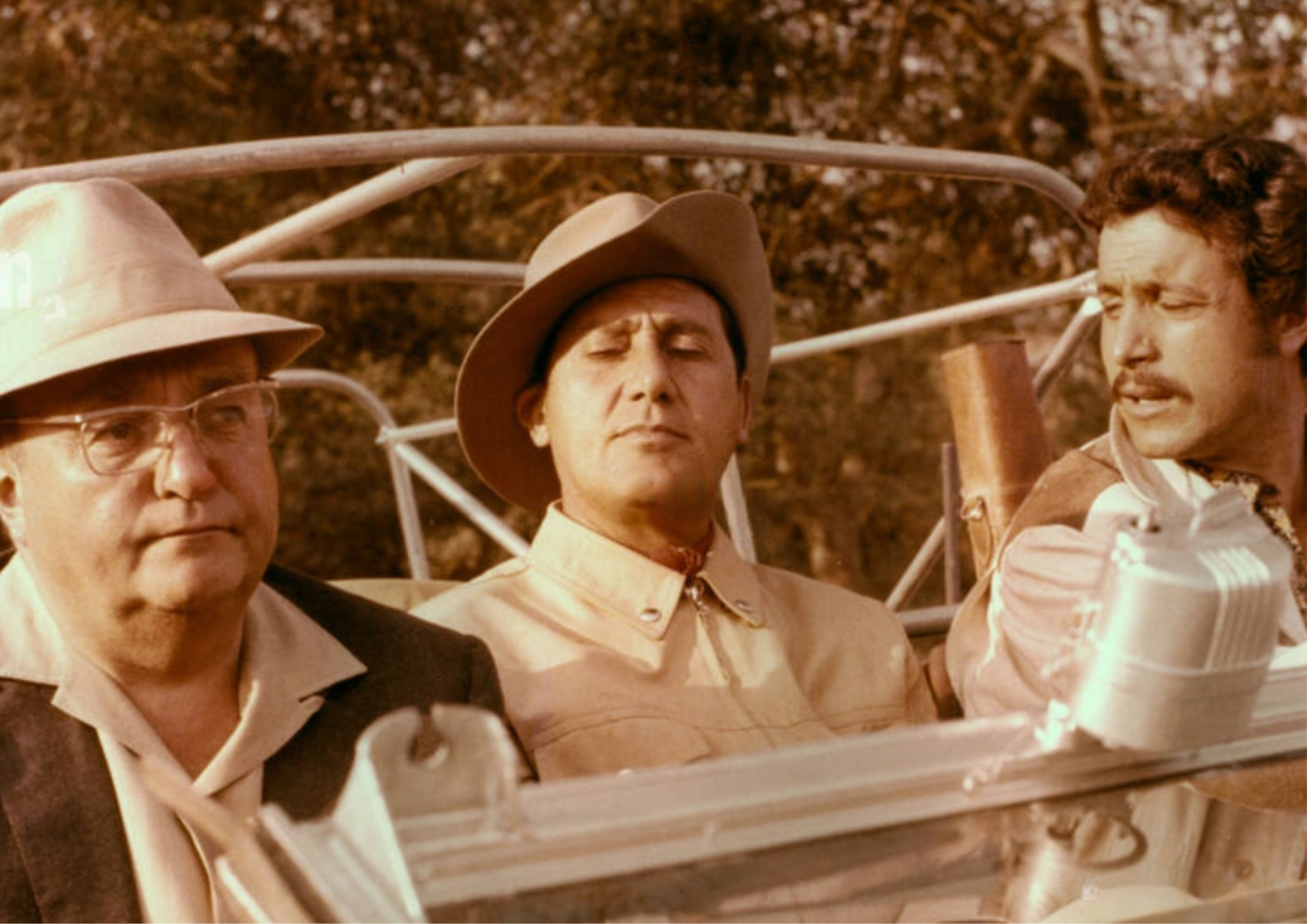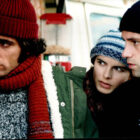Ettore Scola, one of Italy’s most revered filmmakers – director of masterpieces such as Una giornata particolare and C’eravamo tanto amati – brought a unique blend of humor, social commentary, and cinematic artistry to the screen with his 1968 film Riusciranno i nostri eroi a ritrovare l’amico misteriosamente scomparso in Africa? often shortened to Riusciranno i nostri eroi. This film stands as a testament to Scola’s deft touch in crafting narratives that are both deeply personal and universally resonant.
The film follows the misadventures of two main characters, Fausto Di Salvio (played by Alberto Sordi) and Ubaldo Palmarini (played by Bernard Blier). Fausto, a wealthy Roman industrialist, embarks on a journey to Africa to find his brother-in-law, Oreste Sabatini (Nino Manfredi), who has mysteriously disappeared. Ubaldo, his loyal and somewhat bumbling accountant, accompanies him on this quest.
As they traverse the African landscape, the film delves into themes of cultural clash, existential search, and the absurdity of the human condition. Fausto and Ubaldo’s journey is not just a physical one but also an emotional and philosophical expedition, marked by encounters that challenge their preconceptions and force them to confront their own identities.
Scola uses the African setting – was filmed in Angola, between Luanda, Dondo and the island of Cazanga – to create a stark contrast with the European characters, highlighting their ignorance and naivety. The film deftly satirizes the Western attitude towards Africa, portraying Fausto and Ubaldo’s often misguided and patronizing behavior. This is not just a critique of individual characters but a broader commentary on post-colonial attitudes and the West’s persistent misconceptions about the so-called “Dark Continent.”
At its core, Riusciranno i nostri eroi is a story about the search for identity and purpose. Fausto’s quest to find Oreste becomes a metaphor for his own mid-life crisis and his struggle to find meaning beyond material wealth. Ubaldo, on the other hand, represents the everyman, whose loyalty and simplicity contrast sharply with Fausto’s complexity and restlessness.
Scola’s film is rich with absurdist humor, a hallmark of his style. The interactions between Fausto and Ubaldo are laced with comedic elements that underscore the absurdity of their situation. The humor often arises from the juxtaposition of their serious quest with the ridiculous predicaments they find themselves in. This blend of comedy and existential reflection is a signature of Scola’s work, making the film both entertaining and thought-provoking. Scola’s use of the African landscape is masterful, employing wide shots to emphasize the vastness and the unknown nature of the terrain to the protagonists. The cinematography, by Claudio Cirillo, captures the beauty and harshness of the environment, creating a visual metaphor for the internal journey of the characters.
The film’s strength lies in its character-driven narrative. Alberto Sordi and Bernard Blier deliver exceptional performances, bringing depth and nuance to their roles. Sordi’s portrayal of Fausto is particularly compelling, balancing arrogance with vulnerability, while Blier’s Ubaldo provides the perfect foil with his understated and earnest demeanor. Upon its release, Riusciranno i nostri eroi was well-received for its witty script, engaging performances, and Scola’s insightful direction. It has since gained a reputation as a classic of Italian cinema, appreciated for its layered storytelling and the way it encapsulates the societal and personal issues of its time.
Ettore Scola’s work, including this film, has had a lasting impact on Italian cinema. His ability to blend humor with serious themes has inspired countless filmmakers. Riusciranno i nostri eroi remains a significant work in Scola’s oeuvre, exemplifying his unique vision and his contribution to the evolution of cinematic storytelling in Italy. The film is more than just a comedic adventure; it is a poignant exploration of identity, cultural misconceptions, and the human condition. Through the lens of humor and satire, Ettore Scola crafts a film that is both entertaining and deeply reflective, securing its place as a timeless piece of Italian cinema.
Watch the movie on Movieitaly+
Read more articles here!






